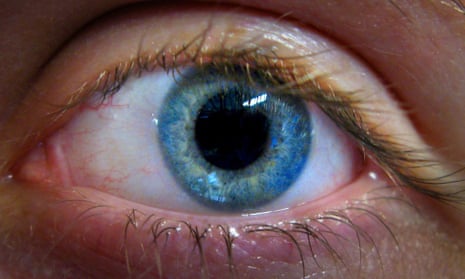AI-Powered Eye Scans Offer Promise in Early Dementia Detection
High street opticians may soon be able to identify individuals at risk of dementia using artificial intelligence to analyze eye scans during routine eye exams. This innovative technique, known as Quartz, could revolutionize the early detection of neurodegenerative conditions like Alzheimer’s disease.

Quartz analyzes the shapes and sizes of retinal blood vessels, which are linked to brain health. The technology automatically assesses the width of tiny veins and arteries, known as arterioles and venules, and how much these vessels twist and turn. The blood vessels in the eye are linked to those in the brain, creating an opportunity to study retinal scans and assess blood vessels’ characteristics non-invasively.
Scientists at City, St George’s, University of London, scanned the eyes of over 63,000 individuals between 40 and 69 years of age using Quartz, and compared the results with cognitive test scores that measured memory, reaction time, and intelligence. The results indicated that individuals with narrower retinal blood vessels and specific twisting patterns tended to score lower on tests for memory, reaction time, and intelligence. These findings were adjusted for factors like age, sex, and ethnicity.
Professor Chris Owen, the lead author of the study, explained that the changes in retinal blood vessels may be due to reduced blood supply to the brain, which could be an early sign of dementia and Alzheimer’s. This research, funded by Alzheimer’s Research UK and published in the journal Alzheimer’s & Dementia, is a significant step towards earlier detection.
This technique could one day be “seamlessly embedded” into the daily routines of high street opticians and eye clinics.
Owen believes the application of the technique would be easily accessible, low-cost, and quick, helping to identify individuals who are at risk of developing neurodegenerative conditions without the need for invasive tests.
David Thomas, head of policy for Alzheimer’s Research UK, called the prospect of detecting early dementia signs via routine eye tests at high street opticians a “gamechanger.” He emphasized that integrating these eye scans with existing tests like brain scans would provide a comprehensive view of a person’s condition and lead to faster access to supportive care.
Thomas also noted that the technique is unlikely to be available for high street use for at least another five years but will be beneficial when effective treatments become available.


